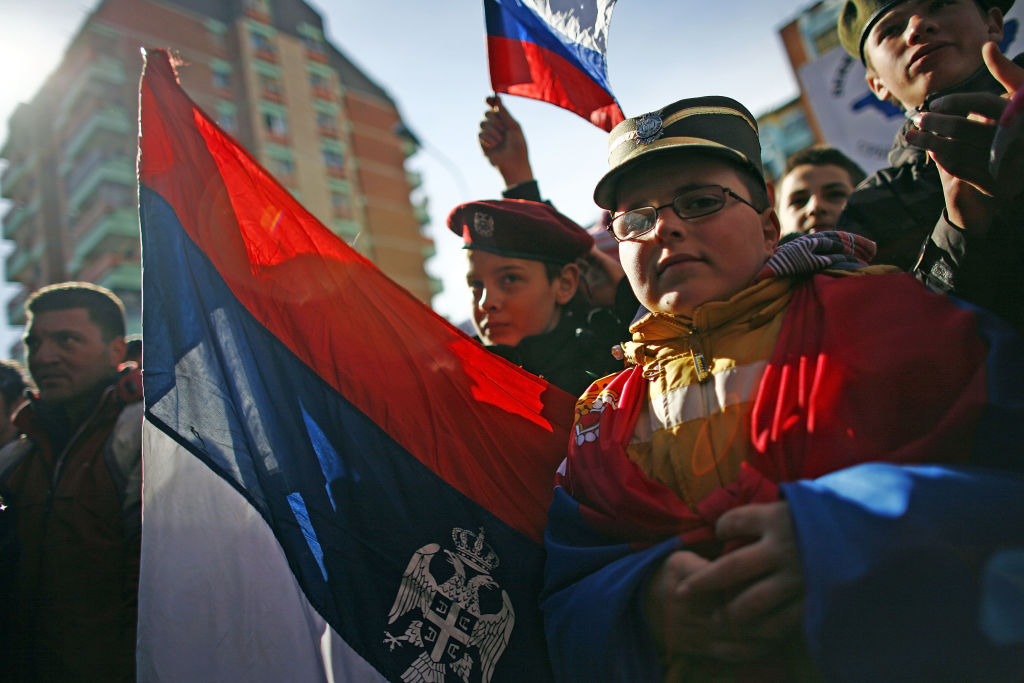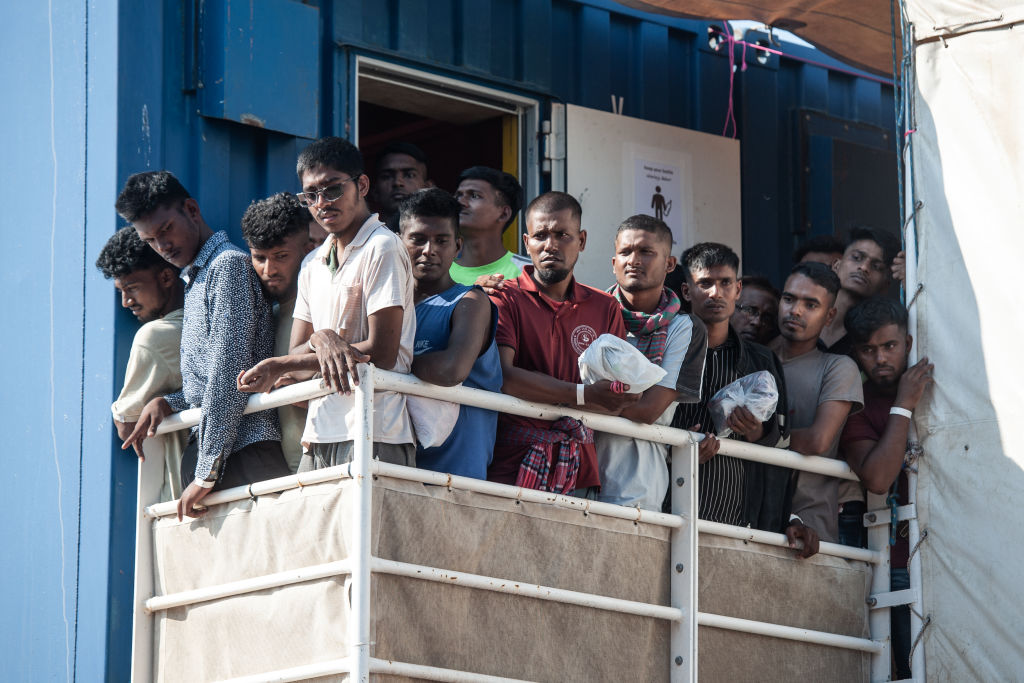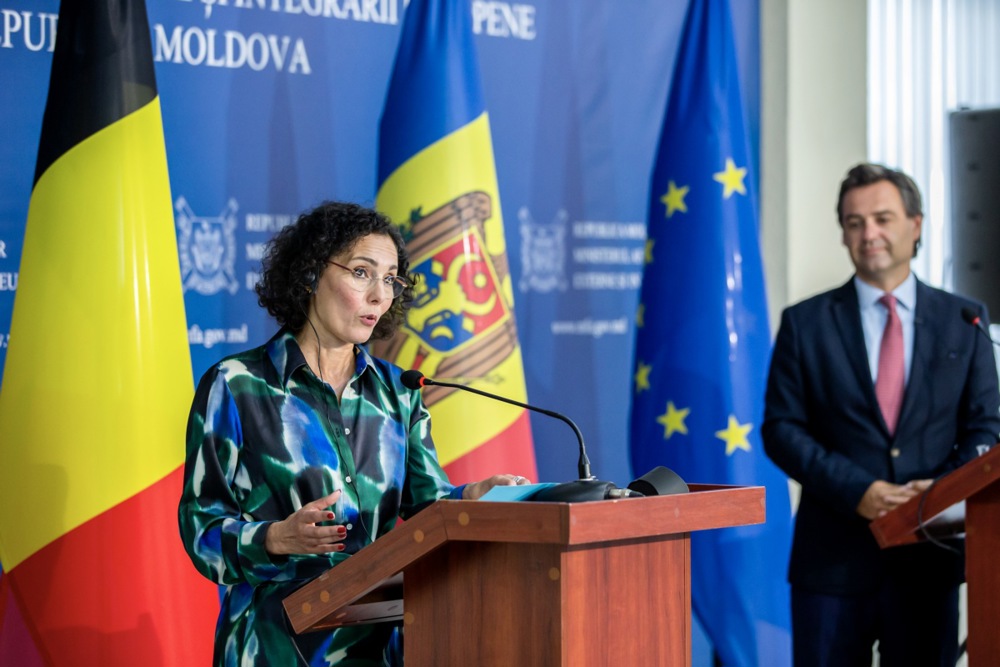The European Union is urging the Serb-controlled part of Bosnia-Herzegovina to withdraw proposed legislation that brands non-profit organisations (NGOs) funded from abroad as “foreign agents”.
On September 26, the parliament of Bosnian Serbs is set to vote on new legislation designed to reduce the “influence” of NGOs.
According to the EU, the branding of NGOs as foreign agents “aims to intimidate and suppress civil society organisations”.
“Civil society organisations play a key role in democratic societies: they hold elected officials accountable, fight corruption and strengthen the rule of law,” the EU delegation to Bosnia and Herzegovina said in a statement.
“That is why authoritarian regimes across the world attack them and label them as traitors.”
Other countries have classified foreign-funded NGOs as foreign agents, including Russia.
Hungary has approved a foreign agent bill aimed at curbing the influence of players such as Hungarian-American businessman George Soros.
“The worrying adoption of the amendments to the Republika Srpska criminal code that re-criminalised defamation already had a chilling effect on free speech in Republika Srpska,” the EU statement said.
Republika Srpska, also known as Republic of Srpska, is one of the two entities composing Bosnia and Herzegovina, the other being the Federation of Bosnia and Herzegovina.
Adopting the draft law would bring Republika Srpska closer to authoritarian regimes “than to the European family,” the EU said.
In August, the Bosnian-Serb Parliament passed legislation re-criminalising defamation. Opponents argue that the law curbs freedom of speech and silences dissident journalists.
The EU is working on a law forcing NGOs, consultancies and academic institutions to disclose any non-EU funding as part of a crackdown on foreign influence, in line with the American Foreign Agents Registration Act. Under such, NGOs would be obliged to disclose all their foreign income.
European Commission President Ursula von der Leyen announced the plans as a “defence of democracy” package in her 2022 State of the Union speech. Věra Jourová, the EC’s vice-president for transparency, is working on the bill.
Under the proposed reforms, groups that fail to abide by their transparency obligations may face fines.
Still, appeasing detractors of the planned stipulations, Jourová stated that the organisations would not be barred from interacting with EU officials indefinitely. Campaigners may also ask to keep their declarations private to avoid “stigmatisation”, she said.
More than 200 groups protested against the proposed European law in May.
In regard to freedom of speech, the EU is increasingly targeting what many see as vague concepts such as “disinformation” and “online hate”, which seem to go further than “defamation”.
The EU delegation in Bosnia and Herzegovina stated: “The European Union is founded on the values of respect for human rights, freedom, democracy and the rule of law. These are protected by the Constitution of Bosnia and Herzegovina, as well as of Republika Srpska and other legislation.
“This draft law directly contradicts the repeated commitments of the Republika Srpska leadership to advance European integration and specifically key priority 11 on civil society and key priority 12 on freedom of expression and of the media.
“The upcoming European Commission Report on Bosnia and Herzegovina will underline this very clearly,” it concluded.
The Organisation for Security and Co-operation in Europe (OSCE) made similar comments.
In an open letter, Brian Aggeler, the head of the OSCE mission to Bosnia and Herzegovina, asked the Bosnian-Serb lawmakers to refrain from taking any action that would undermine human rights and fundamental freedoms.
Aggeler urged them to “immediately and permanently” reject the draft law and ensure that all future legislation complies with the international and domestic human-rights standards to which Bosnia has committed itself.
The EU calls on all members of the RSNA to oppose the draft RS Law on Non-Profit Organisations, which aims to intimidate and suppress civil society organisations by branding their representatives as "foreign agents".https://t.co/ggr56tx0Wj
— EU in Bosnia and Herzegovina (@eubih) September 21, 2023
Republika Srpska is located in the North and East of the country and has a population of around 140,000 people, mostly Serbian.
Its political leadership has repeatedly stated it wants independence and to rejoin neighbouring Serbia.





